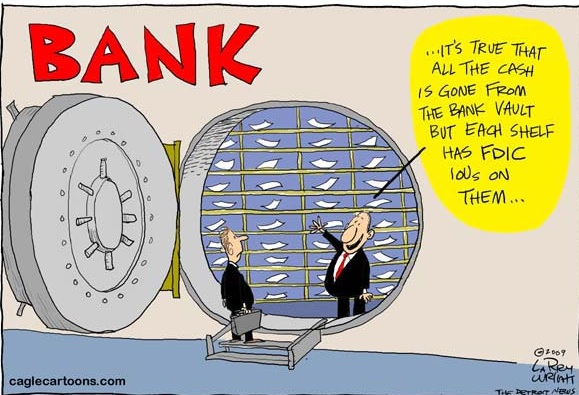Asli Demirgüç-Kunt and Enrica Detragiache, World Bank, Development Research Group, and International Monetary Fund, Research Department write:
In a system without deposit insurance depositors have a big incentive to monitor their banks behaviour, to ensure they do not act in a manner which may endanger their solvency. (If the government didn’t promise to repay your money in the case that your bank fails, would you not be a little more concerned about how the bank uses your money?). In a system with deposit insurance this incentive is removed. Economists call this moral hazard. Moral hazard is when the provision of insurance changes the behaviour of those who receive the insurance in a undesirable way. For example, if you have contents insurance on your house you may be less careful about securing it against burglary than you otherwise might be.
Deposit insurance removes depositors incentive to monitor bank lending decisions because they are guaranteed to receive their money back. Instead, depositors are incentivised by the interest rate offered. Of course, those banks offering the highest interest rate will be those taking the greatest risks, and so banks are incentivised to finance the highest risk, highest return projects.
While higher interest rates may seem to benefit depositors due to higher returns (but not taxpayers – due to greater risks leading to more financial crisis and bailouts) it reality they do not. Instead of offering a higher rate of interest the private bank can offer a lower rate, because the deposit is risk free. This results in a subsidy to the banking sector – the value of which reached over £100bn in 2008.
So despite the fact that deposit insurance is intended to increase the stability of the banking system by preventing bank runs it may in fact make it more dangerous by encouraging risky behaviour from banks:
The U.S. Savings & Loan crisis of the 1980s has been widely attributed to the moral hazard created by a combination of generous deposit insurance, financial liberalization, and regulatory failure… Thus, according to economic theory, while deposit insurance may increase bank stability by reducing self-fulfilling or information-driven depositor runs, it may decrease bank stability by encouraging risk-taking on the part of banks. Banks are Different from Other Businesses

